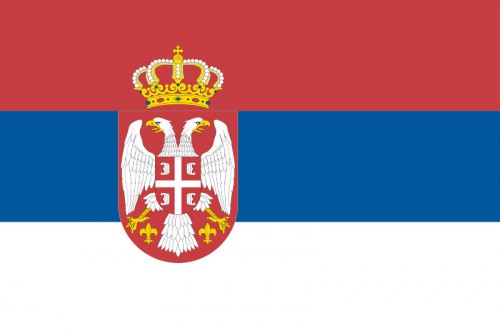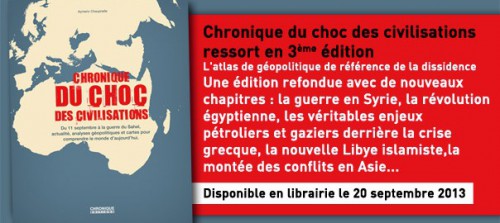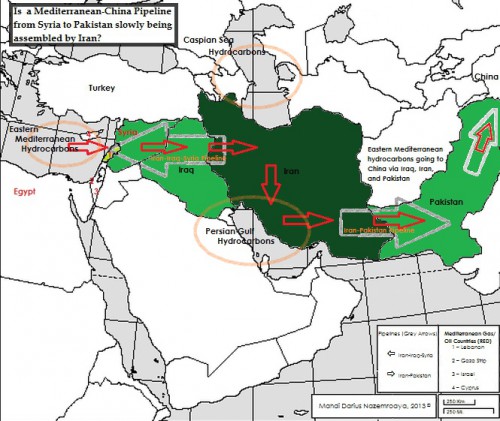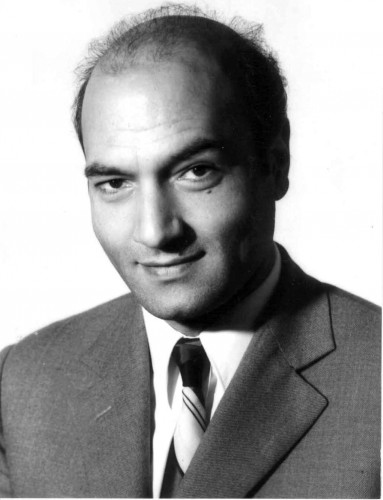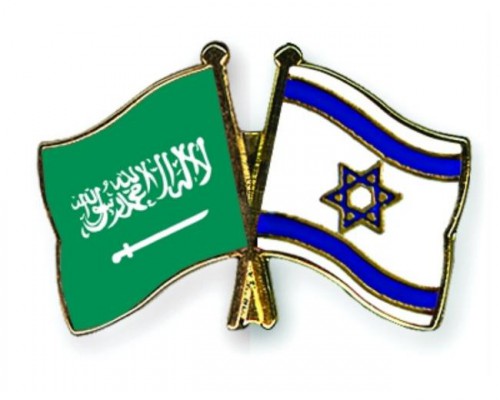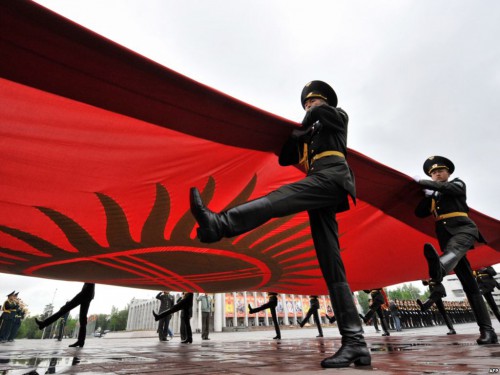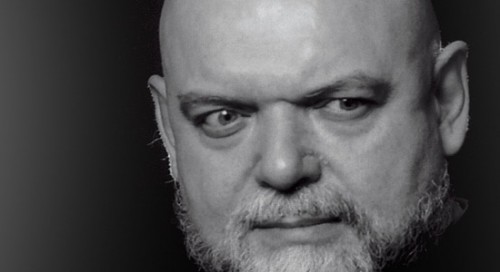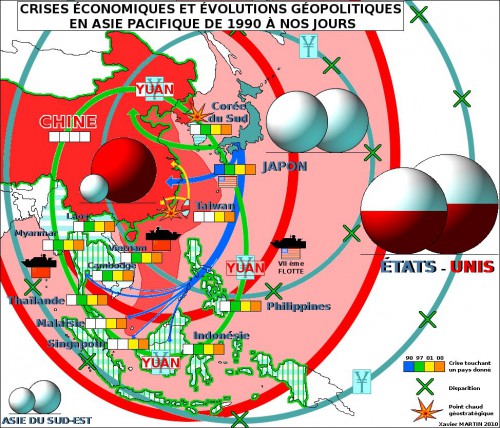
Propedeútica a un mundo multipolar o la Tercera Guerra Mundial
Por Dr. Sebastián Ballesteros Walsh* - El Espía Digital
Ex: http://paginatransversal.wordpress.com
Archive: novembre 2012
Las calles del Imperio
Washington DC, como Roma, Londres, o París o San Petersburgo, es majestuosa ciudad imperial, desde la idea urbanística, el diseño arquitectónico de sus edificios públicos, sus Museos y Ministerios y Bancos, pulcros parques y jardines y los miles de cerezos que florecen en abril, con un toque de millonaria policromía japonesa, contrastada con los verdes de la frondosa vegetación perenne.
Es una hermosa ciudad, si prefiere Georgetown o vivir en los barrios de la periferia, lo suficientemente lejos de la Casa Blanca, el Capitolio y el corazón urbano del Distrito de Columbia, una zona delincuencial verdaderamente peligrosa, que lo pueden despojar de sus bienes en un santiamén y por la corrupción que se ha enseñoreado del Congreso, dominado por los lobbies de Nueva York, la verdadera capital del Imperio, que han despojado de sus libertades y de sus bienes a la mayoría de los norteamericanos, y consentido guerras injustificables.
Envuelta en la cautivamente e hipnótica parafernalia presidencialista de la marcha Heil to the Chieff, paradójicamente una de las metrópolis con mas alta mortalidad presidencial por atentados, solo comparable con la Roma decadente, de pretores, degenerados y lunáticos. Los mitos aglutinantes del Imperio y de su Pax Americana, imagen del faro luminoso que guía a la humanidad por la segura ruta de la democracia, manteniendo en alto la flama de la libertad en la Isla de Ellis, el libre comercio, los derechos humanos y todas las libertades de la Constitución, que fue modelo de las Constituciones liberales de las Naciones Latinoamericanas, traerían progreso, abundancia y prosperidad, pero las copias no han funcionado, al menos no para todos.
El trabajo sí es para todos pero, al final la tajada de león es sólo para banqueros, plutócratas, usureros y sus legiones de eficientes abogados y contadores, directores de medios masivos obsecuentes, y la renovada clase de ciertos generales y almirantes, incompetentes y corruptos, trepadores en las estructuras de poder—- ascendieron lejos de la línea de fuego, centrados en sus carreras políticas más que en el destino de la nación, que no decir de sus propias armas—, puestos a su servicio desde de su retiro temprano con jugosas pensiones, para ascender al Directorio de Corporaciones, las puertas del verdadero poder que domina al Imperio, previas voluntarias concesiones de conciencia hasta quedar como lujosos instrumentos del verdadero poder sin alma, con bonos, acciones y cuentas de cheques.
Distantes e ignorados, los combatientes de la línea de fuego, generales brillantes, oficiales comprometidos y soldados valientes, que sudan, sangran y sufren en lejanas guerras incomprensibles, caprichosas, donde domina el espíritu aniquilador de Hiroshima, Dresde, Nagasaki y Hamburgo. Las legiones están cansadas, desmoralizadas y asqueadas de haber cambiando de branding, de bravos y patriotas, a criminales, sicarios y asesinos seriales.
Si Ud no se ha percatado, la Estatua de la Libertad, símbolo del nuevo mundo, tiene la cabeza hueca como lo es el resto del monumento donado por la Francia de la Revolución y la guillotina. Bajo su antorcha millones han llegado para compartir un sueño, el sueño americano que toca a su fin. Hoy los inmigrantes pasan a ser los villanos inasimilables de Samuel Huntington, el placebo de enemigo necesario para justificar un clima paranoico de guerra interna, la sociedad de la vigilancia electrónica, el dominio del protector Hermano Mayor, el sueño cumplido del suicida Arthur Koestler en 1984. No hay guerra sin enemigo agresor, por eso es necesario inventarlo, fabricarlo, aderezarlos con todos los ingredientes truculentos de la maldad y la sevicia amenazante, e inminente, para entregar con cuentagotas rebanadas de libertad a cambios de una mítica seguridad evasiva siempre amenazada.
Y claro serán los hispanos, morenos y mestizos, el blanco preferido de la propaganda de guerra del Ministerio de la Verdad, encarnada en CNN y en Fox, para demonizar al inmigrante inasimilable porque habla español, ama su familia y su terruño y ora a la Virgen de Guadalupe, casus belli declarado Huntington dixit. Los mexicanos, Osama Bin Laden y Al Qaeda, son los fantasmas que agita la propaganda de guerra para devorar libertades y aumentar presupuestos de guerra y de seguridad, clima mental de paranoia, violencia, distractores eficaces del problema real que enfrenta el Imperio.
El Almirante Mullen, Jefe del Comando Conjunto de las FFAA de USA, declaró sin ambages que el peor enemigo de la seguridad nacional de su país, no era Al Qaeda, sino la burbuja especulativa inmobiliaria gestada por la usura de la Calle del Muro, el otro muro. Pues 40 millones de hipotecas tóxicas, tienen en vilo o en la calle a otras tantas familias, 20 millones de desempleados, 50 millones de adictos que no pueden vivir una semana sin drogas, el déficit fiscal trillonario, el dólar sobrevaluado en un 20%, el riesgo de la recesión, y un país en una larga guerra by proxy, que puede sufragar hipotecando el futuro de generaciones nonatas de nietos y bisnietos. Estos son en conjunto indicadores precisos de que el Imperio unipolar más poderoso en la historia de la humanidad, esta tocado en la línea baja de flotación. Pero un pueblo guerrero, con la maquinaria militar mas avanzada y los recursos tecnológicos impensables, el control de los siete mares, del espacio y las 1000 bases en todo el mundo, guerras en 30 países, 120 mil contratistas privados en Afganistán y otros tantos en Irak, no se bajará del ring sin pelear.
Por eso en mis cavilaciones, me pregunto qué dilemas pasan por la mente de los políticos que mandan a los militares, para engarzarlos en otra guerra mas, en donde tienen mas que perder que ganar, sólo para servir a la minoría fanática que dirige a Israel, poniendo en riesgo la seguridad del pueblo judío todo, en el umbral de un Holocausto nuclear.
¿Cómo dejar Afganistán e Irak retornando las legiones de combatientes sin haber ganado nada? ¿Cómo dejar ahora al África del Norte y Central, en el caos provocado por la guerra de intervención contra el Coronel Gadafi y contra Libia que recuerda al Congreso de Bruselas de fines del siglo XIX en que los imperios se repartieron las colonias como lo harían después en Versalles? ¿Cómo seguir adelante con la destrucción de Siria paso previo a una desastrosa intervención militar contra Irán?. ¿Cómo soslayar que el nuevo Versalles del Medio Oriente diseñado por los tanques de cerebros del occidente plutócrata, no sea el mapa para reproducir después y pronto en América Latina, empezando con México, convertido en proconsulado, víctima de una violencia importada desde el Norte, ocupando con mil excusas humanitarias y ambientales, los espacios vacíos de la región, los Petenes, la Amazonia y la Patagonia? ¿Cómo no elevar el grado de alerta con probables movimientos secesionistas en el Sureste Mexicano, en el Soconusco sobre el Pacífico, en Guayas en Ecuador, en los llanos venezolanos, en Santa Cruz de la Sierra y en el Paraguay?. ¿Qué reacción esperar de Brasil cuando el Comando de la Cuarta Flota reactivada desde después del fin de la Segunda Guerra Mundial declara que navegarán por aguas turbias, clara definición de la Amazonia, al mismo tiempo que la UE y la OTAN solicitan su internacionalización pues Brasil no podría administrar ese pulmón de la humanidad? Tanta generosidad del Imperio es realmente embargante.
Si Mitt Romney declara que el enemigo es Rusia, esto es el retorno a la Guerra Fría, es perfectamente congruente con el pensamiento estratégico neocons. Después de la caída del Muro de Berlín, el cambio de la doctrina de Guerra norteamericana que declara la legalidad del ataque estratégico preventivo—al demonio con la jurisprudencia del Tribunal Militar de Núremberg y con los ejecutados por crímenes de guerra — tira por la borda todos los avances de desarme nuclear, y provoca el rearme de Rusia.
El Imperio contrataca: la instalación de sistemas misilísticos en el Centro de Europa, sólo significa la capacidad instalada para abatir la segunda ola de misiles desde Rusia, si ésta es atacada por la OTAN, no por Irán. La base militar en Darwin Australia, retrotrae la historia a la Segunda Guerra Mundial, en un clima de asedio y contención contra la Republica Popular China, a la que el Asesor de NSA ha declarado el enemigo a aislar en el Lejano Oriente.
El Imperio tiene las tasas mas altas de generales y almirantes por soldados que cualquier fuerza armada de la tierra, y el Departamento de Defensa se ha convertido en un burocracia infernal con 2 millones de empleados en todo el mundo, y en el mayor terrateniente global, superando las aspiraciones de Donald Trump o Ted Turner o (el mexicano de origen libanés) Carlos Slim (el hombre más rico del mundo según revistas especializadas).
Washington DC con todo su glamour atractivo para incautos, es una vanidosa galería de espejos, de pasadizos traseros del poder, por donde caminan presurosos hombres y mujeres talentosos, dispuestos a prestar servicio a los lobbies, dejando en su idílica caja fuerte hogareña, los restos de conciencia, valores y principios éticos WASP a buen recaudo.
Washington es el escaparate del poder imperial, es la rama ejecutiva, legislativa y judicial, de una democracia de partidos, que ha dejado de ser democrática hace muchas décadas atrás, casi un siglo, cuando los plutócratas tomaron el control del timón de la nación en vías de convertirse en Imperio. Las poderosas maquinarias burocráticas de ambos partidos son tan corruptas, como lo son el Congreso y Senado resultantes, dominados por las aportaciones para sus campañas políticas de los lobbies todopoderosos que se ufanan de tener a congresistas y senadores en su bolsillo. Estas minorías partidistas representan los intereses, creencias y ambiciones del 1% que domina al Imperio, pero no representan en absoluto la voluntad del electorado norteamericano tan arrogante como dócil, tan pendular como ingenuo, al hacerse cómplice activo con un sistema basado en mentiras, verdades a medias, rampante corrupción y perpetuo auto engaño, de seguir las reglas del juego del sistema, incrédulamente creyente de que es el mejor del orbe.
Los candidatos políticamente incorrectos, que los hay en el espectro político norteamericano, que arrastran muchos más de los que desearía la Homeland Security, la nueva onerosa y obesa burocracia represiva del Big Brother, desaparecen por arte de magia de las mass media, víctimas de la ley del silencio y la censura impuesta por las corporaciones que pagan anuncios y los lobbies que actúan como desbastadores ejércitos privados.
Los presidentes llegan al poder mintiendo y mienten deliberadamente. Nixon ganó con los votos conservadores, pero fue uno de los presidentes más liberales de su época. Barak Obama recibió el Premio Nobel de la Paz, -como Henry A. Kissinger, el hombre de los Rockefeller, quien al menos cumplió en entregar el sudeste asiático a la esfera comunista-, pero BO lo recibió en estado de gracia, como premio anticipado, antes de haber pacificado nada. La devaluación de los Premios Nobel, desde que se lo negaran al original Jorge Luis Borges, ha puesto en la vitrina de los cambalaches y las vanidades un premio ignominioso. Una vez en el poder, el presidente demócrata resulto más belicoso, intervencionista y desestabilizador que el joven Bush, fiel al apotegma wilsoniano de la guerra perpetua para la paz perpetua. Las doctrinas, políticas y estrategias de los neoconservadores de Brooklyn, aquellos impetuosos jóvenes judíos trotskistas del 68, transformados en “tanque de cerebros” de las administraciones republicanas, primero volcaron en nuevos odres los viejos vinos de la revolución cultural mundial permanente, continuaron con BO su marcha en todos los frentes de guerra, aceleraron las intervenciones abiertas y encubiertas y azuzaron los conflictos por venir en las zonas geopolíticas de tensión, montados en la administración demócrata.
La dinámica democrática
Miente, gana votos y después en el poder haz exactamente lo contrario a lo que has prometido, al cabo dispones de legiones de cerebros capaces de justificar cualquier tropelía, asesinato, tortura, invasión, bloque o destrucción de una nación colocada en la lista negra del Imperio. Al cabo es un empleado de lujo, pero fiel y obediente CEO del verdadero poder plutócrata, que dirige los destinos del Imperio hacia nuevos espacios, nuevas guerras, nuevos órdenes mundiales, fraguados por el complejo industrial-militar-financiero-usurero, que profetizara infructuosamente el Presidente Dwight Eisenhower.
Los resultados de las elecciones presidenciales norteamericanas, descritas cáusticamente por el místico ruso Alexander Solzhenitsin como una pasajera locura carnavalesca, son realmente irrelevantes, pues la competencia electoral y los debates kabuki entre Romney-Obama sólo son una exhibición publica de sus debilidades y flaquezas, del poder de los lobbies poderosos que dirigen la política exterior norteamericana: quién era más fervoroso sionista—aunque no fuera judío—y quién era más agresivamente belicoso en propagar el nuevo evangelio del globalismo capitalista salvaje que ha de dar nacimiento al Nuevo Orden Mundial, anunciado por el viejo Bush hace mas de dos décadas, propulsado por la Revolución Mundial Cultural.
Sentado en una banca frente al Monumento a Lincoln al final del Mall en el corazón de la capital exotérica del Imperio, las cavilaciones se refrescan con el fluir del rio que toda capital imperial tiene por natura.
Las cavilaciones giran en torno al reordenamiento del mapa político del Medio Oriente, iniciada con la invasión y conquista de Irak, balcanizada sobre líneas étnicas y religiosas, remodelación del divide et impera, al wilsoniano modo versallesco de 1918. Esa remodelación ad hoc a los intereses plutocráticos del Imperio, USA-OTAN, que arrastra una larga costosa y desgastante guerra en Irak y Afganistán, sólo augura más guerra, sufrimiento y muerte.
El primer ensayo fue la intervención en los Balcanes, que culmina exitosamente con el reconocimiento unilateral de Kosovo, el nido de mafiosos, terroristas, tratantes de blancas, fundamentalistas musulmanes y traficantes de drogas, que como modelo a seguir, nos deja pasmados por las contradicciones y la hipocresía del discurso legitimador que justifica la peor atrocidad como los ataques terroristas en Siria perpetrados por mercenarios financiados por Qatar y Arabia Saudita, unos a los salafistas, los otros a la Hermandad Musulmana. Hipocresía similar a la violación de Libia y del África por los aliados de USA, la Francia de Sarkozy, la Gran Bretaña de Cameron y la omnipresente Hillary Clinton.
El primer Versalles fue Iberoamericano
Aconteció a principios del siglo XIX cuando el Barón de Humboldt, después de largo periplo por las Colonias Borbónicas de América Española, comparte información privilegiada con sus amigos Jefferson, Madison, sobre las debilidades y fortalezas de la América Hispana. En su juicio geopolítico y racial, no era bueno para las Colonias Inglesas recién independizadas, tener un poder al sur de sus fronteras que compitiera con fuerza e intereses contrapuestos. Deciden que lo mas sabio seria que la América Hispana se dividiera en tres bloques, mientras contenía al Imperio del Brasil anglófilo costero y periférico.
Entre banquetes, cenas, degustaciones privadas de finos vinos y oporto, se diseñó la política de divide et impera para América Latina, antes que iniciaran los procesos de independencia de la España invadida por Napoleón Bonaparte, al desaparecer la autoridad de los Reyes Borbones, calamidad de una casa reinante decadente. El ministro especial norteamericano en América del Sur primero y en México después, Joel Poinsett, sembraría de logias masónicas yorkinas anticatólicas y antiespañolas, jacobinas virulentas, que darían origen a las sangrientas guerras civiles que desgarraron la región por más de un siglo. Y el resto, lo hicieron los caudillismos hasta quedar pulverizadas en veintitantas republicas, exangües y desangradas, económicamente en quiebra por tanta guerra civil, inspirada desde fuera, mientras el Imperio de Brasil, después Republica, permaneció unido y es hoy un obstáculo geopolítico para el Imperio.
América para los americanos
Enunciada en 1820, era en realidad América para los norteamericanos. La construcción veterotestamentaria del Destino Manifiesto, inspirada en las más semitizadas corrientes puritanas escocesas en las Colonias Inglesas del Este, es el antecedente teológico de las guerras de conquista inspiradas por los neocons hebreos de Brooklyn, los cristianos evangelistas sionistas, y los católicos sionistas como el Vicepresidente Biden, el lobby poderoso AIPAC y los fundamentalistas sionistas en el poder en Israel.
Es equívoco confundir el Dios lo Quiere de las Cruzadas, con el Destino Manifiesto, esto es una expresión teológica de iluminación a un pueblo elegido para que llegara a su tierra prometida, a su paraíso terrenal, al paraíso de los trabajadores de Lenin y Marx, el paraíso capitalista de las bancas neoyorquinas, londinenses, parisinas y frankfurtianas, teología que inspira a los neocons y a los fanáticos sionistas que sueñan con el Gran Israel del Nilo al Éufrates, meta sobre la que avanzan paso a paso sin descanso.
Las Cruzadas terminaron sangrando a la nobleza de la espada, drenando las finanzas de los reinos cristianos, y engordando las bolsas de los prestamistas, usureros de los guetos, de los navieros y financieros venecianos en su propio provecho. Hoy se cocina una nueva Cruzada neocons contra el Islam en general pero en especial contra la Republica Islámica de Irán, impulsada por conversos al catolicismo vaticano como el británico Tony Blair y el norteamericano Greenwich, con la bendición del Vaticano y la colaboración de la fatídica Compañía de Jesús, la decadente orden de Los Legionarios de Cristo, y los nuevos fariseos del Opus Dei. No debe extrañar que enarbolen el estandarte de la Virgen de Guadalupe, quien en el imaginario popular, sufre ahora una metamorfosis esquizoide manipulada con una interpretación indigenista que ha de complacer al Comandante Marcos y a sus mentores habaneros y defeños ensotanados.
Esta guerra teológica de expansión geopolítica asume la convergencia de las tres religiones monoteístas en una empresa jerarquizada donde Israel tiene la preminencia sobre el Catolicismo Vaticano, que ha transitado de los hermanos separados, a los hermanos mayores, hasta la paternidad judía sobre el Catolicismo, en boca de Juan Pablo II y Benedicto XVI. El Vaticano es una internacional más en el juego geopolítico del Nuevo Orden Mundial, auxiliar y sierva del Sionismo, al transformar al Gólgota en Auschwitz, a las persecuciones de los primeros cristianos en el fantasma del Holocausto, y al consagrar a Europa, no a San Esteban o Santa Juana de Arco, sino a una santa al vapor, Edith Stein, muerta de tifus en un campo de concentración, una intelectual activista de la resistencia militante.
La expansión hacia el Oeste y hacia el Sur produjo la inevitable guerra contra México, que inicia en Tejas y termina con la ocupación de Chapultepec en 1847. Los amigos y discípulos de Poinsett , Lorenzo de Zavala, Gómez Farías, Justo Sierra Méndez, y otros hicieron su tarea para que triunfaran sus ideas de libertad y progreso, aunque México resultara el amargo perdedor, las libertades se evaporaran y el retraso, los odios y el saqueo fueron herencia maldita de las guerras de intervención e invasiones extranjeras.
El segundo Versalles condujo a la Segunda Guerra Mundial y a un nuevo Versalles, en Yalta, donde los aliados configuraron el reparto de Europa, de las colonias de África y Asia, y de las zonas de influencia de las potencias vencedoras.
No hay duda que después de dos guerras europeas, Estados Unidos, intervino para desnivelar la balanza siempre a su favor, desplazando a los poderes europeos occidentales, para emerger como el nuevo Imperio, la potencia unipolar que brilla con la caída del Muro de Berlín y la implosión de la antigua URSS, dando fin a la guerra fría, al menos en apariencia.
El aire frío y una pertinaz llovizna me hace buscar refugio junto a Abraham Lincoln, quien murió asesinado en situaciones más que sospechosas por ser un obstáculo para los intereses de las Bancas inglesas que habían apoyado al esclavista Sur.
Hay mucho que caminar bajo la lluvia y el frente de tormenta se acumula frente a mis ojos, muy lejos de aquí, en las zonas de fricción donde el Imperio Unipolar se resiste a la realidad de un mundo multipolar, a un equilibrio de fuerzas, tan cebado de haberse convertido en la primer potencia sin rival capaz de derrotarlo.
Me vienen a la mente los textos del bardo ingles Guillermo El que agita la Lanza, en su Enrique V , las guerras feudales que duraron más de 100 años y en una batalla inolvidable, a 160 kilómetros de Calais, pasando el Rio Somme, un lejano 25 de octubre de 1415, en Agincourt , cuyo desenlace arroja una lección que muchos prefieren ignorar: el pequeño, hambriento y cansado ejército ingles derroto a la poderosa, mejor armada y mejor blindada caballería pesada francesa, que sucumbió en el campo de batalla víctima del peso de sus armaduras. De ahí el famoso fervorín de Enrique V y la banda de hermanos que conformaron los victoriosos combatientes en que los arcos largos vencieron a las armaduras pesadas de la caballería francesa.
Enrique V arenga a sus tropas antes de la batalla: Ojala fuésemos menos, así la Gloria de la Victoria será mayor y desde este día seremos recordados hasta el fin de los tiempos…
“We few,
we happy few,
we band of brothers…. Saint Crispin Day!!.
Mientras recuerdo el texto de William Shakespeare y la celebración dando gracias Dios por la victoria, enderezo mis pasos hacia uno de los Museos del Mall en busca de alguna sorpresa agradable, como una exposición de Rodin.
Mientras camino por los senderos voy tarareando la pegajosa melodía de la pelicula:
NON NOBIS DOMINE,
DOMINE NON NOBIS DOMINE
SED NOMINI,
SED NOMINI,
TUO DA GLORIAM.
El poeta nicaragüense Rubén Darío en su Oda a Roosevelt, durante la guerra contra la España borbónica, denunció tardíamente lo que ya México había experimentado en carne propia, tuvo una lúcida inspiración pues en cada línea, adquieren hoy una dimensión paradójicamente de claroscuro:
¡Es con voz de la Biblia, o verso de Walt Whitman,
que habría que llegar hasta ti, Cazador!
Primitivo y moderno, sencillo y complicado,
con un algo de Washington y cuatro de Nemrod.
Eres los Estados Unidos,
eres el futuro invasor
de la América ingenua que tiene sangre indígena,
que aún reza a Jesucristo y aún habla en español.
Eres soberbio y fuerte ejemplar de tu raza;
eres culto, eres hábil; te opones a Tolstoi.
Y domando caballos, o asesinando tigres,
eres un Alejandro-Nabucodonosor.
(Eres un profesor de energía,
como dicen los locos de hoy.)
Crees que la vida es incendio,
que el progreso es erupción;
en donde pones la bala
el porvenir pones.
No.
Los Estados Unidos son potentes y grandes.
Cuando ellos se estremecen hay un hondo temblor
que pasa por las vértebras enormes de los Andes.
Si clamáis, se oye como el rugir del león.
Ya Hugo a Grant le dijo: «Las estrellas son vuestras».
(Apenas brilla, alzándose, el argentino sol
y la estrella chilena se levanta…) Sois ricos.
Juntáis al culto de Hércules el culto de Mammón;
y alumbrando el camino de la fácil conquista,
la Libertad levanta su antorcha en Nueva York.
Mas la América nuestra, que tenía poetas
desde los viejos tiempos de Netzahualcóyotl,
que ha guardado las huellas de los pies del gran Baco,
que el alfabeto pánico en un tiempo aprendió;
que consultó los astros, que conoció la Atlántida,
cuyo nombre nos llega resonando en Platón,
que desde los remotos momentos de su vida
vive de luz, de fuego, de perfume, de amor,
la América del gran Moctezuma, del Inca,
la América fragante de Cristóbal Colón,
la América católica, la América española,
la América en que dijo el noble Guatemoc:
«Yo no estoy en un lecho de rosas»; esa América
que tiembla de huracanes y que vive de Amor,
hombres de ojos sajones y alma bárbara, vive.
Y sueña. Y ama, y vibra; y es la hija del Sol.
Tened cuidado. ¡Vive la América española!
Hay mil cachorros sueltos del León Español.
Se necesitaría, Roosevelt, ser Dios mismo,
el Riflero terrible y el fuerte Cazador,
para poder tenernos en vuestras férreas garras.
Y, pues contáis con todo, falta una cosa: ¡Dios!
* Experto en Geoestrategia y en Prospectiva de escenarios. Académico en varias Universidades Latinoamericanas, analista político. Forma parte del equipo para la sección latinoamericana de “El Espía Digital”.
Extraído de: El Espía Digital.



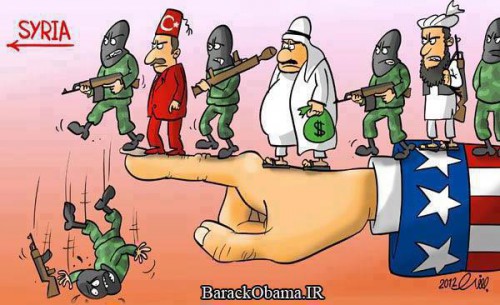

 del.icio.us
del.icio.us
 Digg
Digg






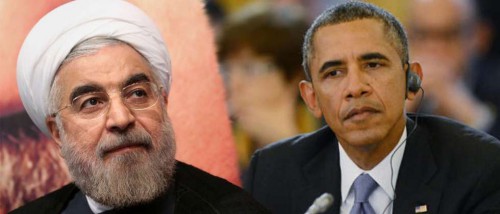
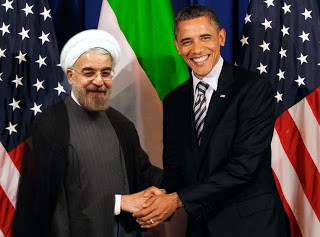 The Saudi spat with its historic Washington ally has several ways of playing out. Jilted over American «double standards» in the Middle East (how ironic is that?), senior members of the House of Saud, including intelligence chief Prince Bandar bin Sultan, have hinted that the oil-rich kingdom may shop elsewhere for its billion-dollar weapons toys that it traditionally sources from Washington. Given the parlous state of the US industrial economy, such a loss of exports in a key revenue sector, would be a nasty blow...
The Saudi spat with its historic Washington ally has several ways of playing out. Jilted over American «double standards» in the Middle East (how ironic is that?), senior members of the House of Saud, including intelligence chief Prince Bandar bin Sultan, have hinted that the oil-rich kingdom may shop elsewhere for its billion-dollar weapons toys that it traditionally sources from Washington. Given the parlous state of the US industrial economy, such a loss of exports in a key revenue sector, would be a nasty blow... 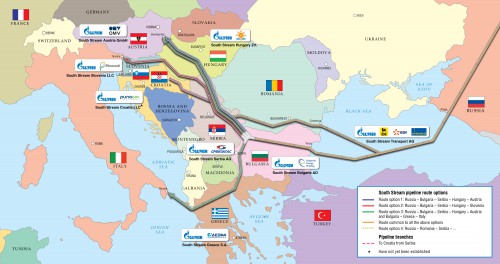

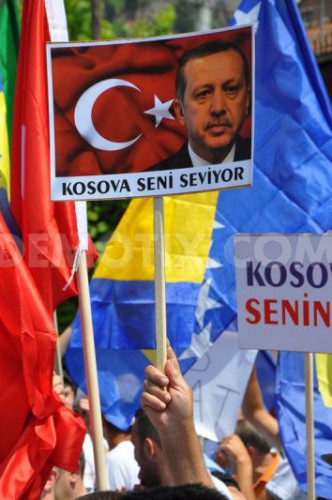 Les turcs ne se sentent certes pas européens mais ils sont en Europe physiquement déjà et de plus en plus. L’Europe s’est laissée entraîner par les Usa et l’Otan dans une guerre stupide contre la Serbie, contre le dictateur Milosevic pour les gentils kosovars.
Les turcs ne se sentent certes pas européens mais ils sont en Europe physiquement déjà et de plus en plus. L’Europe s’est laissée entraîner par les Usa et l’Otan dans une guerre stupide contre la Serbie, contre le dictateur Milosevic pour les gentils kosovars.

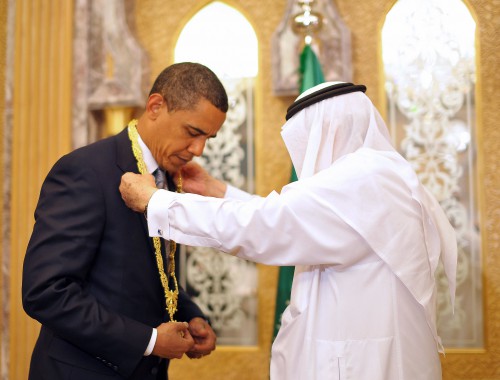
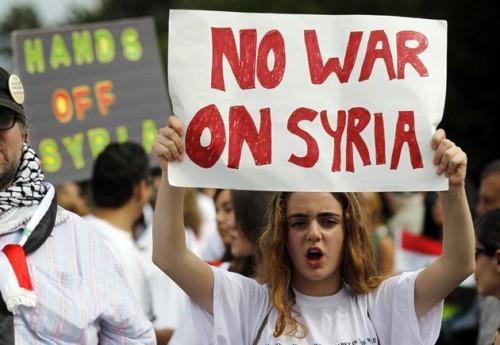

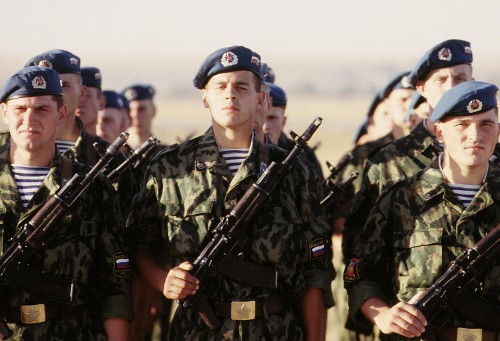





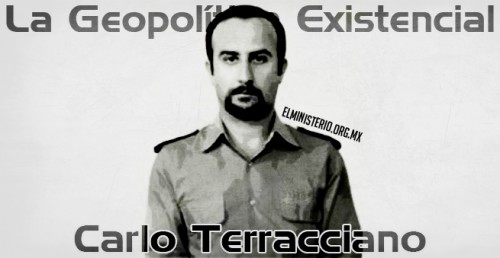
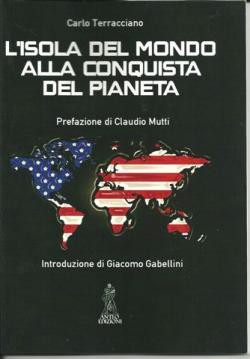 Pero en el primer cuarto del siglo XX, el desafío conceptual de H. Mackinder fue contestado por los geopolíticos que se ubicaron en el lado de la telurocracia. Se trataba, en primer lugar, de la escuela alemana de Karl Haushofer, quien comenzó a desarrollar una base geopolítica telurocrática, Geopolítica-2 (mientras que la geopolítica talasocrática anglosajona se puede llamar “Geopolítica-1″). Así se sentaron las bases para la tradición continentalista.
Pero en el primer cuarto del siglo XX, el desafío conceptual de H. Mackinder fue contestado por los geopolíticos que se ubicaron en el lado de la telurocracia. Se trataba, en primer lugar, de la escuela alemana de Karl Haushofer, quien comenzó a desarrollar una base geopolítica telurocrática, Geopolítica-2 (mientras que la geopolítica talasocrática anglosajona se puede llamar “Geopolítica-1″). Así se sentaron las bases para la tradición continentalista. La formación de puntos de vista geopolíticos han estado acompañados por Terracciano con los correspondientes cambios ideológicos y políticos. La apelación a los criterios geopolíticos, los conceptos y la evaluación del significado crucial de telurocracia exigió la revisión de los fundamentos políticos del patriotismo clásico europeo, que por lo general se refiere a la “Tercera Posición” (anti-liberalismo y anti-comunismo), en el espíritu de Evola, Heidegger y Yockey. Si aceptamos el punto de vista de la potencia terrestre, la Unión Soviética pasó inmediatamente de ser uno de los dos enemigos de Europa (junto con el Occidente capitalista liberal, personificada en los EE.UU.) a ser un aliado. Esto requiere una revisión radical de la “Tercera Posición” y la transición a una fusión entre el europeísmo y el sovietismo, el nacional-bolchevismo. Por una evolución semejante a mediados de los 80′ pasó el máximo teórico de la europea “Nouvelle Droite” Alain de Benoist. A diferencia de muchos otros “nacional revolucionarios” Carlo Terracciano, sin dudarlo, aceptó la dirección ideológica nacional-comunista y se convirtió en uno de los líderes del comunismo nacional en Italia. El Anti-sovietismo y el anticomunismo (sobre todo ahora, después de la caída de la Unión Soviética) se convirtieron en obsoletos y sirven como herramientas en las manos de talasocracia, los liberales y los globalistas. Así que cada ciudadano europeo coherentemente revolucionario debe resueltamente terminar con eso y cooperar activamente con todas las fuerzas de izquierda que luchan contra la hegemonía estadounidense y el capitalismo liberal, que encarnan la esencia de la talasocracia y la civilización del mar. Este giro a la izquierda de Terracciano fue la conclusión lógica de su análisis geopolítico, y él ha dado pasos más decisivos en esta dirección uniéndose así con la tradición de la “Joven Europa” (siguiendo el ejemplo de Claudio Mutti, amigo y colega de Carlo Terracciano ), y convirtiéndose en un pionero de las nuevas tendencias nacional-comunistas y eurasiatistas en la política moderna italiana y europea. Para esta posición política Carlo Terracciano consagró todo un libro bajo el expresivo nombre de “Comunismo Nacional”.
La formación de puntos de vista geopolíticos han estado acompañados por Terracciano con los correspondientes cambios ideológicos y políticos. La apelación a los criterios geopolíticos, los conceptos y la evaluación del significado crucial de telurocracia exigió la revisión de los fundamentos políticos del patriotismo clásico europeo, que por lo general se refiere a la “Tercera Posición” (anti-liberalismo y anti-comunismo), en el espíritu de Evola, Heidegger y Yockey. Si aceptamos el punto de vista de la potencia terrestre, la Unión Soviética pasó inmediatamente de ser uno de los dos enemigos de Europa (junto con el Occidente capitalista liberal, personificada en los EE.UU.) a ser un aliado. Esto requiere una revisión radical de la “Tercera Posición” y la transición a una fusión entre el europeísmo y el sovietismo, el nacional-bolchevismo. Por una evolución semejante a mediados de los 80′ pasó el máximo teórico de la europea “Nouvelle Droite” Alain de Benoist. A diferencia de muchos otros “nacional revolucionarios” Carlo Terracciano, sin dudarlo, aceptó la dirección ideológica nacional-comunista y se convirtió en uno de los líderes del comunismo nacional en Italia. El Anti-sovietismo y el anticomunismo (sobre todo ahora, después de la caída de la Unión Soviética) se convirtieron en obsoletos y sirven como herramientas en las manos de talasocracia, los liberales y los globalistas. Así que cada ciudadano europeo coherentemente revolucionario debe resueltamente terminar con eso y cooperar activamente con todas las fuerzas de izquierda que luchan contra la hegemonía estadounidense y el capitalismo liberal, que encarnan la esencia de la talasocracia y la civilización del mar. Este giro a la izquierda de Terracciano fue la conclusión lógica de su análisis geopolítico, y él ha dado pasos más decisivos en esta dirección uniéndose así con la tradición de la “Joven Europa” (siguiendo el ejemplo de Claudio Mutti, amigo y colega de Carlo Terracciano ), y convirtiéndose en un pionero de las nuevas tendencias nacional-comunistas y eurasiatistas en la política moderna italiana y europea. Para esta posición política Carlo Terracciano consagró todo un libro bajo el expresivo nombre de “Comunismo Nacional”.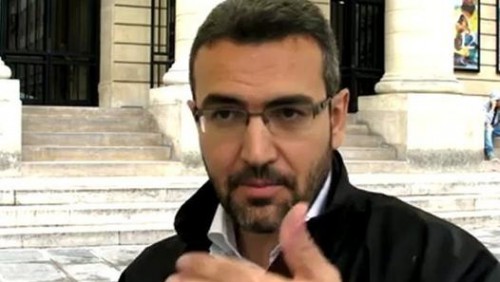
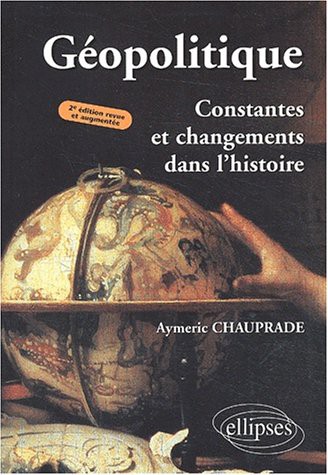 D'abord j'essaie de ne pas idéaliser la Russie même si je ne vous cache pas que je me sens extrêmement bien dans ce pays, parce que le matérialisme m'y paraît sans cesse équilibré par une sorte de profondeur d'âme insondable. Je pense que quelque chose est en train de se passer dans la Russie de Poutine et j'espère seulement que le Président Poutine pense à la manière de perpétuer son héritage, car la pire chose qui pourrait arriver ce serait le retour des occidentalistes de l'ère Eltsine, qui prennent la Russie pour un pays du Tiers monde qu'il faudrait mettre aux normes occidentales. L'appel de Moscou que j'ai lancé poursuivait deux buts: d'abord montrer mon soutien au refus russe du programme nihiliste venu d'Occident (mariage homosexuel, théorie du genre, merchandisation du corps), ensuite montrer aux Français qui défendent la famille et les valeurs naturelles que la Russie peut être une alliée précieuse dans ce combat. Je suis très surpris et heureux de constater à quel point mon appel de Moscou lancé à la Douma le 13 juin 2013 a circulé en France dans les milieux catholiques qui se sont mobilisés contre le mariage homosexuel.
D'abord j'essaie de ne pas idéaliser la Russie même si je ne vous cache pas que je me sens extrêmement bien dans ce pays, parce que le matérialisme m'y paraît sans cesse équilibré par une sorte de profondeur d'âme insondable. Je pense que quelque chose est en train de se passer dans la Russie de Poutine et j'espère seulement que le Président Poutine pense à la manière de perpétuer son héritage, car la pire chose qui pourrait arriver ce serait le retour des occidentalistes de l'ère Eltsine, qui prennent la Russie pour un pays du Tiers monde qu'il faudrait mettre aux normes occidentales. L'appel de Moscou que j'ai lancé poursuivait deux buts: d'abord montrer mon soutien au refus russe du programme nihiliste venu d'Occident (mariage homosexuel, théorie du genre, merchandisation du corps), ensuite montrer aux Français qui défendent la famille et les valeurs naturelles que la Russie peut être une alliée précieuse dans ce combat. Je suis très surpris et heureux de constater à quel point mon appel de Moscou lancé à la Douma le 13 juin 2013 a circulé en France dans les milieux catholiques qui se sont mobilisés contre le mariage homosexuel.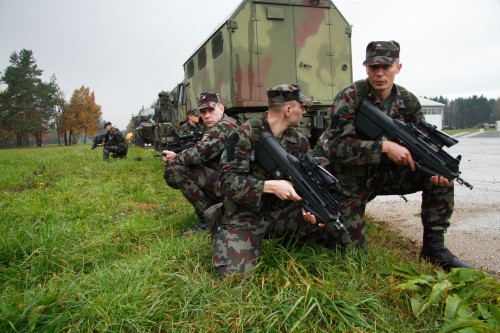
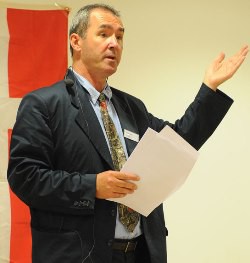 DMZ: Welche Rolle spielten dabei die europäischen Großmächte?
DMZ: Welche Rolle spielten dabei die europäischen Großmächte?

